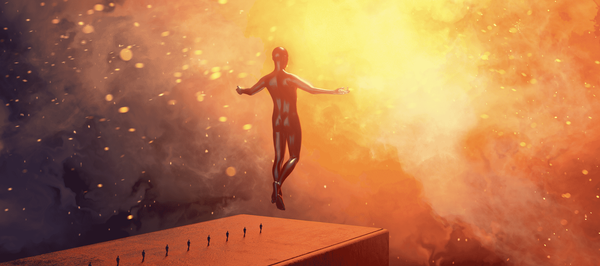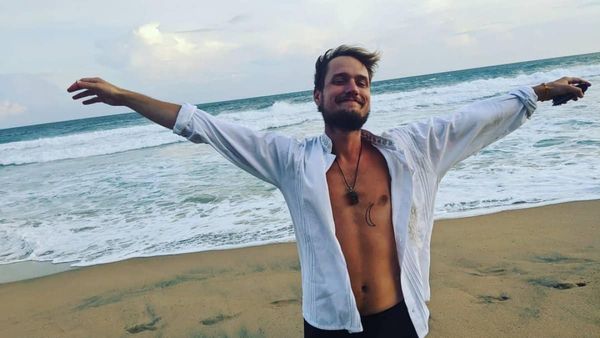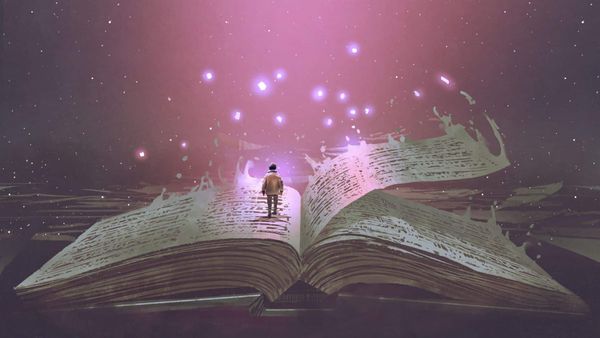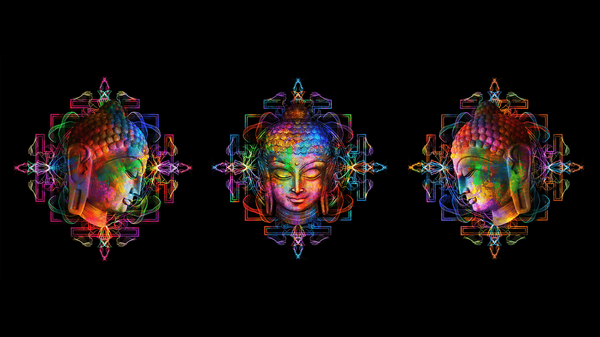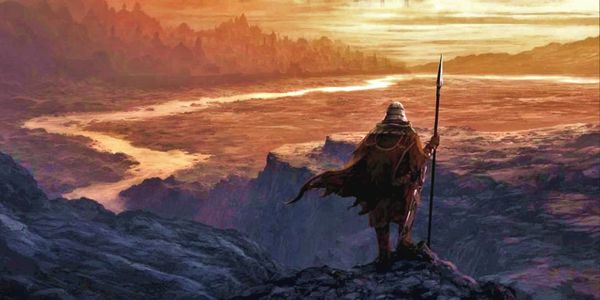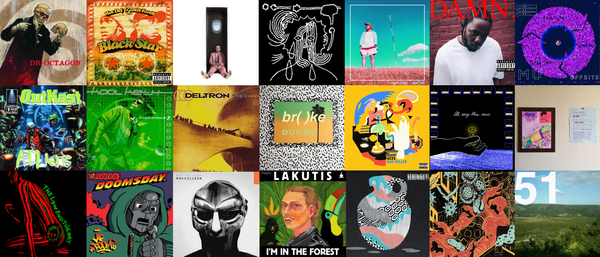ZARATHUSTRA SMITH • • 13 min read
19 Eye-Opening R. Crumb Quotes on Mass Culture, Psychedelics, Art, Being Human, & the 1960s Counterculture
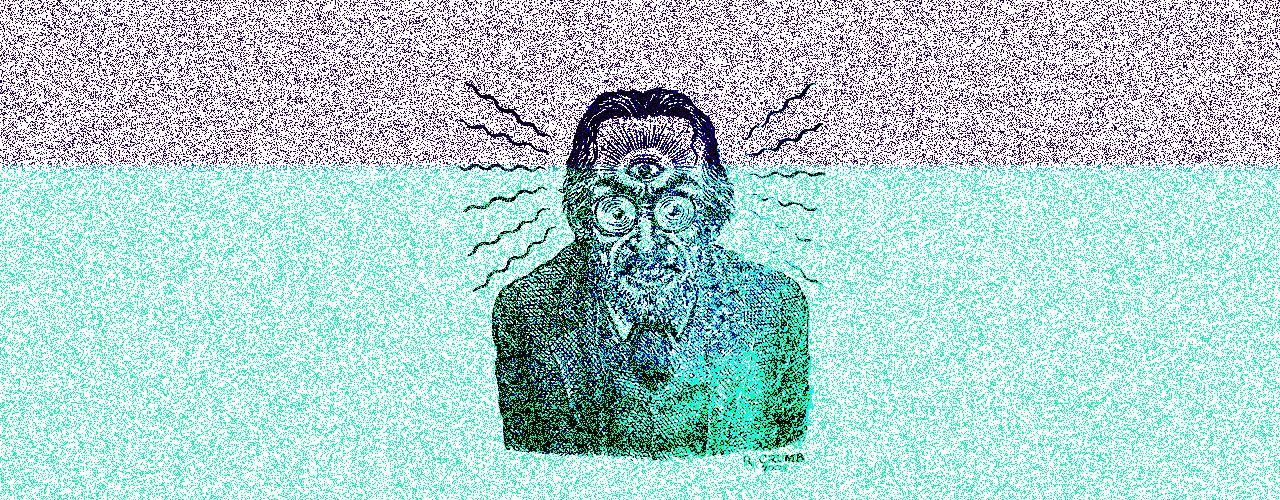
R. Crumb was one of the 20th century’s most notorious and influential countercultural artists.
Robert Dennis Brown, better known as R. Crumb, was born in Philadelphia in 1943 to Catholic parents. His father was a Combat Illustrator for the US Marine Corps, and his mother was a housewife. His parents’ marriage was tumultuous, and his mother reportedly abused diet pills and amphetamines. Robert and his four brothers and sisters frequently witnessed their parents’ disputes.
In school, Robert was an average student, and his teachers strongly discouraged him from cartooning. Ironically, he would go on to become one of those most well-known and celebrated illustrators of the 21st century.
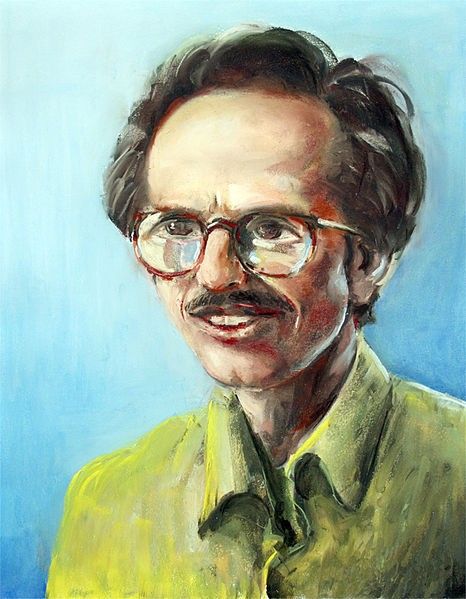
In 1965, Crumb tried LSD for the first time, at the age of 21. His experiences with the drug were transformative for him, and in 1967, he moved to San Francisco on a whim with some friends, where he contributed work to underground newspapers. At that point, his work started gaining popularity, and he began to see comics not purely as a form of entertainment, but as a space for unfettered expression. His work became more experimental and sexually explicit, and he began to gain recognition in the counterculture of the late 60s and early 70s.
Here’s a taste of his work:
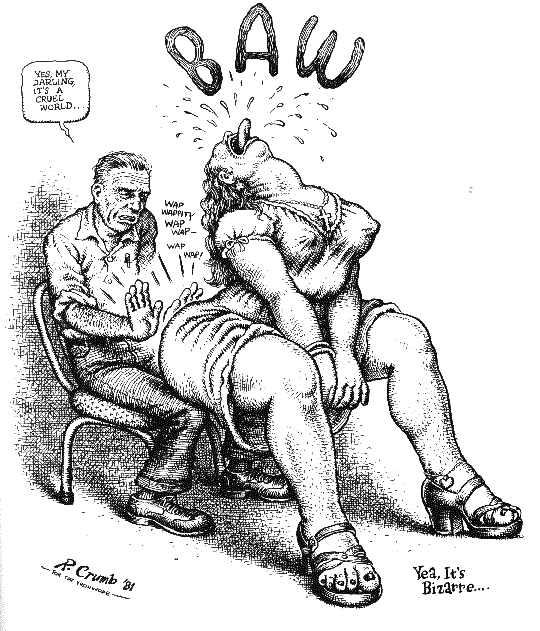
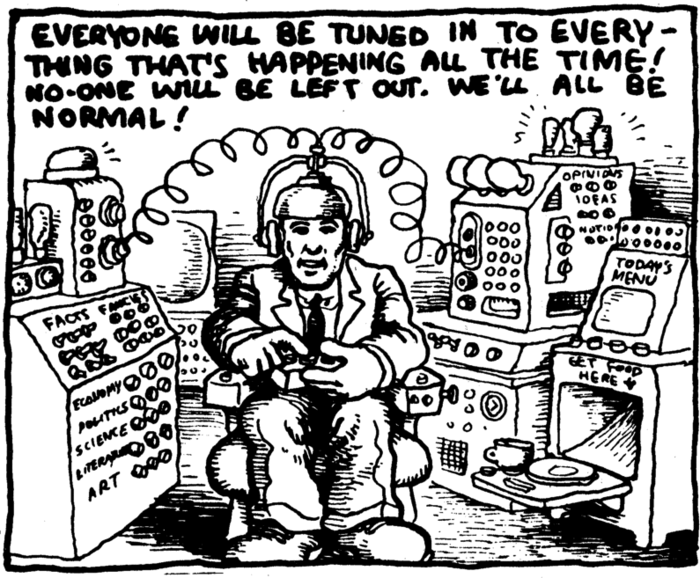
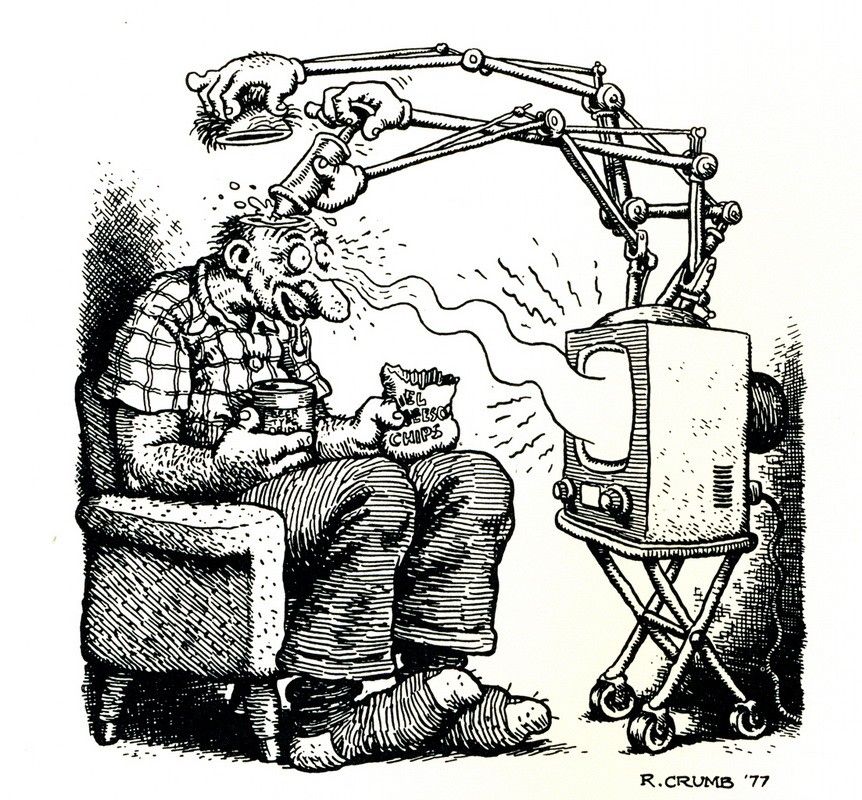
Hopefully those three images alone have give you an idea of why Crumb became such an icon in the countercultural sphere. He was a pioneer of self-expression and a quintessential example of a human whose life aligned with Terence McKenna’s call to “create [one’s] own roadshow,” one’s own culture.
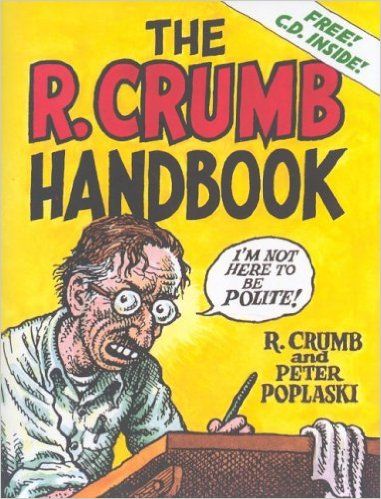
In 2005, Crumb published The R. Crumb Handbook, a “collection of original cartoons and never-before-published work” that contains many profound insights into Crumb’s life, art, thought, and the motivations behind his work. Beyond that, the book provides invaluable perspective on the nature and effects of American mass culture — how it arose, what it replaced, what it’s like to to live within such a culture, and more.
The majority of the following quotes are pulled from The R. Crumb Handbook. Absorb them slowly, mull them over. They’re some of the most raw, honest, and potently world-broadening perspectives I’ve come across.
On Consumerism & Mass Culture“What we kids didn’t understand was that we were living in a commercial, commodity culture. Everything in our environment had been bought and sold. As middle class Americans, we basically grew up on a movie set. The conscious values that are pushed are only part of the picture. The medium itself plays a much bigger part than anyone realizes: the creation of illusion. We are living surrounded by illusion, by professionally created fairy tales. We barely have contact with the real world.”
“As a kid growing up in the 1950s I became acutely aware of the changes taking place in American culture and I must say I didn’t much like it. I witnessed the debasement of architecture, and I could see a decline in the quality of things like comic books and toys, things made for kids. Old things seemed to have more life, more substance, more humanity in them.”
“About the only power you have is the power to discriminate. Living in a culture like this, you have to make choices and search out what has the most authentic content or substance. In the 1960s, while on LSD, I realized that my mind was a garbage receptacle of mass media images and input. I spent my whole childhood absorbing so much crap that my personality and mind are saturated with it. God only knows if that affects you physically! As a kid I became increasingly interested in earlier periods of culture. I turned into a little nostalgia boy, and I became steeped in the Our Gang fantasy from watching them on TV. So much so, that my speech patterns were affected. The style of those Our Gang comedies was so charming that I started acting and talking like Jackie Cooper and Alfalfa. They had these cute kids, artificial mannerisms. It must have been embarrassing for people to hear me talk like that.”
“Before industrial civilization, local and regional communities made their own music, their own entertainment. The aesthetics were based on traditions that went far back in time—i.e. folklore. But part of the con of mass culture is to make you forget history, disconnect you from tradition and the past. Sometimes that can be a good thing. Sometimes it can even be revolutionary. But tradition can also keep culture on an authentic human level, the homespun as opposed to the mass produced. Industrial civilization figured out how to manufacture popular culture and sell it back to the people. You have to marvel at the ingenuity of it! The problem is that the longer this buying and selling goes on, the more hollow and bankrupt the culture becomes. It loses its fertility, like worn out, ravaged farmland. Eventually, the yokels who bought the hype, the pitch, they want in on the game. When there are no more naive hicks left, you have a culture where everybody is conning each other all the time. There are no more earnest “squares” left—everybody’s “hip”, everybody is cynical.”
On Psychedelics“I was taking LSD periodically, every couple of months. I was in a strange state of mind, influenced by these visions. … I was trying to draw it in my sketchbook, and that began to coalesce into these comic strips that were stylistically based on grotesque, vulgar humor comics of the thirties and forties. … All of those characters came out of that crazy visionary period that I couldn’t shut off. It was spontaneous, but I was so crazy, I was really out of my mind, it was like schizophrenia. It was like what produces art by crazy people in a madhouse. Anything could be an influence, anything I heard. I was in Chicago in early ’66 and the radio was on, there was some tune playing, it was a black station, and this announcer said, That was Mr. Natural. I just started drawing Mr. Natural, this bearded guru-type character in my sketchbook, it just came out.”
“I took some bad acid in November of 1965, and the after effect left me crazy and helpless for six months. My mind would drift into a place that was very electrical and crackly, filled with harsh, abrasive, low grade, cartoony, tawdry carnival visions. There was a nightmarish mechanical aspect to everyday life. My ego was so shattered, so fragmented that it didn’t get in the way during what was the most unself-conscious period of my life. I was kind of on automatic pilot and was still constantly drawing. Most of my popular characters—Mr. Natural, Flaky Foont, Angelfood McSpade, Eggs Ackley, The Snoid, The Vulture Demonesses, Av’ n’ Gar, Shuman the Human, the Truckin’ guys, Devil Girl—all suddenly appeared in the drawings in my sketchbook in this period, early 1966. Amazing! I was relieved when it was finally over, but I also immediately missed the egoless state of that strange interlude. LSD put me somewhere else. I wasn’t sure where. All I know is, it was a strange place. Psychedelic drugs broke me out of my social programming. It was a good thing for me, traumatic though, and I may have been permanently damaged by the whole thing, I’m not sure. I see LSD as a positive, important life experience for me, but I certainly wouldn’t recommend it to anyone else.”
On the Hippie Counterculture
“I was totally amazed. This little home made underground comix thing was turning into a business before my eyes. It went from us going around Haight Street trying to sell these things we had folded and stapled ourselves to suddenly being a business with distributors, lawyers, contracts, and money talk. … The whole thing began to take on a heaviness that I believe had a negative effect on my work. I was only twenty-five years old when all this happened. It was a case of “too much too soon,” I think. I became acutely self-conscious about what I was doing. Was I now a “spokesman” for the hippies or what? I had no idea how to handle my new position in society! … Take Keep On Truckin’… for example. Keep on Truckin’… is the curse of my life. This stupid little cartoon caught on hugely. … I didn’t want to turn into a greeting card artist for the counter-culture! I didn’t want to do ‘shtick’—the thing Lenny Bruce warned against. That’s when I started to let out all my perverse sex fantasies. It was the only way out of being ‘America’s Best Loved Hippie Cartoonist.'”
“I wasn’t that passionate about it [the radical counterculture]. I agreed with it, but at the political demonstrations I would get very nervous when people started chanting in unison. I didn’t like that. I usually disliked those smash-the-state kind of guys, even though I agreed politically with them. I took LSD, I said ‘groovy’ and ‘far-out,’ but I was kind of a detached observer.”
On Art
“I was lucky to be part of the “underground comix” thing in which cartoonists were completely free to express themselves. To function on those terms means putting everything out in the open—no need to hold anything back—total liberation from censorship, including the inner censor! A lot of my satire is considered by some to be “too hard.” My “negro” characters are not about black people, but are more about pushing these “uncool” stereotypes in readers’ faces, so suddenly they have to deal with a very tacky part of our human nature. … Who did I think I was appealing to? I don’t know. I was just being a punk, putting down on paper all these messy parts of the culture we internalize and keep quiet about. I admit I’m occasionally embarrassed when I look at some of that work now.”
“The fine art world and the commercial art industry are both all about money. It’s hard to say which is more contemptible: the fine art world with its double talk and pretensions to the cultural high ground, or the world of commercial art trying to sell to the largest mass market it can reach. A serious artist really shouldn’t be too deeply involved in either of these worlds. It’s best to be on the fringe of them. In general, if you want to be a success and make the money, you have to play the game. It’s no different in the fine art world, it’s just a slightly different game. Essentially, you’re marketing an illusion. It’s much easier to lie to humans and trick them than to tell them the truth. They’d much rather be bamboozled than be told the truth, because the way to trick them is to flatter them and tell them what they want to hear, to reinforce their existing illusions. They don’t want to know the truth. Truth is a bring-down, a bummer, or it’s just too complicated, too much mental work to grasp.”
On Dealing With Other People“I never had a strategy in my dealing with other humans! I’ve always been very passive socially. I went along with their agenda. I had none of my own! Left to my own devices I stayed in my room or wandered aimlessly in the streets, fantasizing about bizarre things I yearned to do to big ladies, or filled with self-pity and resentment. I was helpless in the presence of other people! My main concern was to make them like me by being as agreeable as possible, and secondly to impress them with my brilliance, my sharp wit, my originality, and my fundamental saintliness. Over time, and after years—decades—of diligent practice, I became very good at this cute little performance of mine. But this performance was improvised in the moment, catered to suit whoever I happened to be with. There was no strategy. It was always an effort. Only in solitude was I completely relaxed. Funny thing…”
On Heroes“As a matter of survival I’ve created this anti-hero alter-ego, a guy in an ill-fitting suit—part humunculus and part clown. Yep, that’s me alright … I could never relate to heroes. I have no interest in drawing heroic characters. It’s not my thing, man. I’m more inclined toward the sordid underbelly of life. I find it more interesting to draw grotesque, lurid, or absurd pictures, and I especially enjoy depicting my fevered sexual obsessions.”
On (Half) Suicide“Killing yourself is a major commitment, it takes a kind of courage. Most people just lead lives of cowardly desperation. It’s kinda half suicide where you just dull yourself with substances.”
On Being an Outsider“I knew I was weird by the time I was four. I knew I wasn’t like other boys. I knew I was more fearful. I didn’t like the rough and tumble most boys were into. I knew I was a sissy.”
“I’m an outsider. I will always be an outsider.”
On Being Human“I’m such a negative person, and always have been. Was I born that way? I don’t know. I am constantly disgusted by reality, horrified and afraid. I cling desperately to the few things that give me some solace, that make me feel good. I hate most of humanity. Though I might be very fond of particular individuals, humanity in general fills me with contempt and despair. I hate most of what passes for civilization. I hate the modern world. For one thing there are just too goddamn many people. I hate the hordes, the crowds in their vast cities, with all their hateful vehicles, their noise, their constant meaningless comings and goings. I hate cars. I hate modern architecture. Every building built after 1955 should be torn down! I despise modern popular music. Words cannot express how much it gets on my nerves—the false, pretentious, smug assertiveness of it. I hate business, having to deal with money. Money is one of the most hateful inventions of the human race. I hate the commodity culture, in which everything is bought and sold. No stone is left unturned. I hate the mass media, and how passively people suck it up. … I hate having to eat, shit, maintain the body—I hate my body. … Nature is horrible. It’s not cute and lovable. It’s kill or be killed. … How I hate the courting ritual! I was always repelled by my own sex drive, which in my youth, never left me alone. … I hate the way the human psyche works, the way we are traumatized and stupidly imprinted in early childhood and have to spend the rest of our lives trying to overcome these infantile mental fixations. And we never fully succeed in this endeavor. I hate organized religions. I hate governments. It’s all a lot of power games played out by ambition-driven people, and foisted on the weak, the poor, and on children. Most humans are bullies. Adults pick on children. Older children pick on younger children. Men bully women. The rich bully the poor. People love to dominate. I hate the way humans worship power—one of the most disgusting of all human traits. I hate the human tendency toward revenge and vindictiveness. I hate the way humans are constantly trying to trick and deceive one another, to swindle, cheat, and take unfair advantage of the innocent, the naïve and the ignorant. I hate all the vacuous, false, banal conversation that goes on among people. Sometimes I feel suffocated. I want to flee from it. For me, to be human is, for the most part, to hate what I am. When I suddenly realize that I am one of them, I want to scream in horror.”
“My generation comes from a world that has been molded by crass TV programs, movies, comic books, popular music, advertisements and commercials. My brain is a huge garbage dump of all this stuff and it is this, mainly, that my work comes out of, for better or for worse. I hope that whatever synthesis I make of all this crap contains something worthwhile, that it’s something other than just more smarmy entertainment—or at least, that it’s genuine high quality entertainment. I also hope that perhaps it’s revealing of something, maybe. On the other hand, I want to avoid becoming pretentious in the eagerness to give my work deep meanings! I have an enormous ego and must resist the urge to come on like a know-it-all. Some of the imagery in my work is sorta scary because I’m basically a fearful, pessimistic person. I’m always seeing the predatory nature of the universe, which can harm you or kill you very easily and very quickly, no matter how well you watch your step. The way I see it, we are all just so much chopped liver. We have this great gift of human intelligence to help us pick our way through this treacherous tangle, but unfortunately we don’t seem to value it very much. Most of us are not brought up in environments that encourage us to appreciate and cultivate our intelligence. To me, human society appears mostly to be a living nightmare of ignorant, depraved behavior. We’re all depraved, me included. I can’t help it if my work reflects this sordid view of the world. Also, I feel that I have to counteract all the lame, hero-worshipping crap that is dished out by the mass-media in a never-ending deluge.”
“What the hell is this?? Who can tell me?? Does anybody know?? How can I find out more about it?? One thing’s sure: the human mind can’t “know” it…why does one want to “know”?? Is it a quest for “freedom”? One no longer wishes to be a puppet dancing on the strings of…of what? Animal instincts?? Learned reflexes? Programmed behavior?? Ingrained habits of perception?? How limited are we by the experience of our senses, by our physical nature?? To be fully alive is a stupendous struggle! We want the rewards without the struggle— —a fatal error! … No such thing as an easy life! Everybody has a hard time… struggle or die! To find out what’s really going on it’s necessary to get around the ego… an art requiring persistent and determined effort…Me, me, me…myself & I…oh no!!! Trapped in my stupid self!”
“Everything we do has significance. Every action, every thought leaves an imprint – not only on the self, but on the world, on the others, and even on time, on all who come after us!
This implies a responsibility for one’s thoughts and actions that should be taken most seriously!
And yet one feels helpless, a hapless victim of circumstances beyond one’s control, as if one’s behavior and thoughts did not originate in the self, but were a product, an accumulation of imprints from the world, from our ancestors, from the people around us.
It behooves one to take responsibility, to take the power to decide how one will act, and even how one will think! Not only for the betterment of one’s self, but for the betterment of the world, all the others, and all who will come after us!”
If you appreciated this, consider supporting HighExistence.

